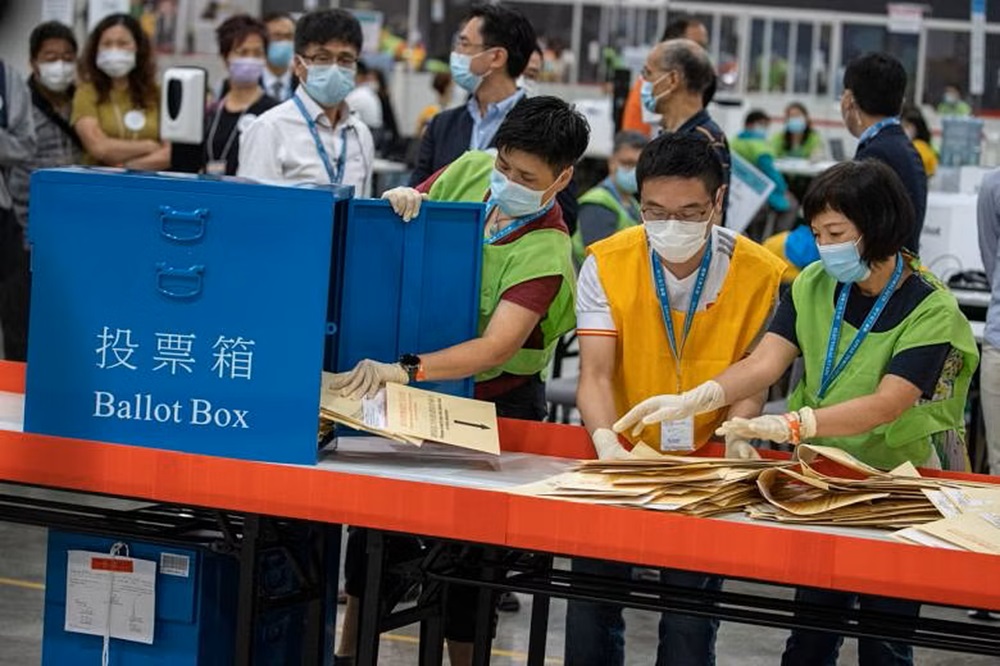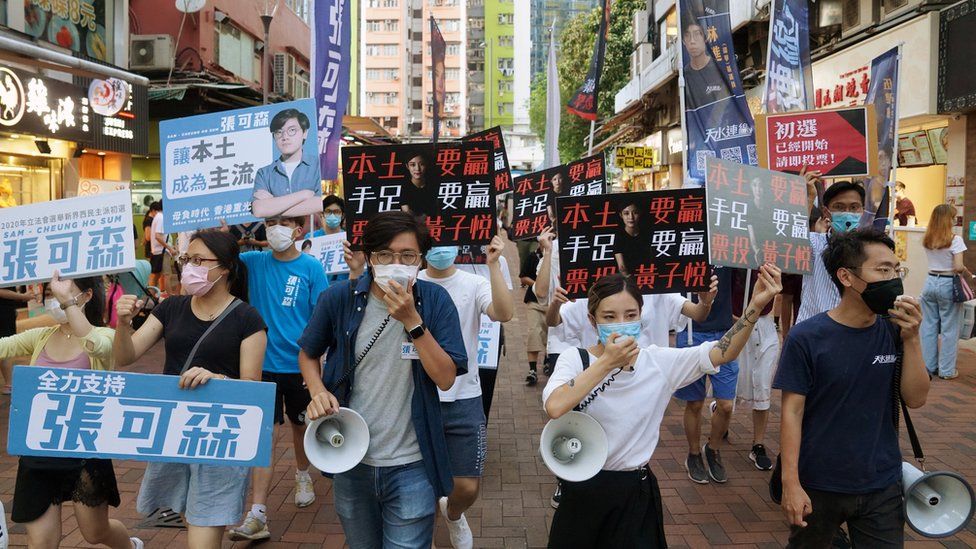The government announced Monday that the turnout in Hong Kong’s inaugural “patriots only” district council elections was 27.5 percent, a record low for a campaign that excluded all opposition candidates.
The city recently held district council elections in 2019, at the height of massive, often violent, democracy rallies, with a historic-high 71 percent turnout and a landslide victory for the democracy camp.
However, a crackdown on dissent has included an effort by authorities to remove from public office anyone deemed politically disloyal following the protests, aided by a sweeping national security law enforced by Beijing.
The voting day on Sunday was extended till midnight after an unusual 90-minute extension was allowed due to a breakdown in the digital system used to authenticate voters’ eligibility.
Despite the extended time, the government’s official website was updated on Monday morning to indicate a final turnout of 27.54 percent, with slightly under 1.2 million of the 4.3 million registered voters voting.
The previous low turnout rate since the city’s handover to China was 35.82 percent in 1999. At roughly 1:45 a.m. Monday (1745 GMT Sunday), city leader John Lee thanked the “more than 1 million” voters for voting.
After casting his ballot on Sunday, he declared that this year’s election was “the final piece of the puzzle to implement the principle of patriots ruling Hong Kong.”
“From now on, the district councils would no longer be what they were in the past — which was a platform to destruct and reject the government’s administration, to promote Hong Kong independence and to endanger national security,” Lee said as he cast his vote on Sunday.
The number of seats that may be directly elected was reduced from 462 to 88 under new regulations announced in May, with the remaining 382 seats controlled by the city leader, government supporters, and rural landlords.
Candidates had to seek nominations from three government-appointed bodies, thereby shutting out all pro-democracy parties. Over 70% of the candidates chosen to run in the election were members of the nominating committees.
On Sunday, police again reacted quickly to any sign of opposition, arresting at least six people. Three of the protesters were members of the League of Social Democrats, one of the city’s few major opposition groups.
Police initially charged the trio with “attempting to incite others to disrupt district council elections,” but later referred them to the Independent Commission Against Corruption (ICAC) on suspicion of “inciting others not to vote.”
Hong Kong’s Elections
Hong Kong’s political structure is complicated, and it has undergone considerable changes in recent years, notably in terms of its connection with mainland China. Under the “one country, two systems” premise, Hong Kong Special Administrative Region (HKSAR) has a high degree of autonomy until 2047.
Protests erupted in Hong Kong in 2019 in response to perceived encroachments on the city’s autonomy by the mainland Chinese government. Demands for more democratic reforms and concerns about the deterioration of civil freedoms also inspired these protests.
Hong Kong has several tiers of governance, including the Chief Executive, the Legislative Council (LegCo), and several district councils. The HKSAR administration is led by the Chief Executive, who is chosen by a tiny committee, prompting complaints that it lacks wide democratic participation.
The Legislative Council is partially elected directly, with some members chosen by functional constituencies. District councils are more localized and focused on community issues.
Elections in Hong Kong have been a source of contention, with disagreements over the extent of democracy and representation in the voting process. The postponement of the 2020 Legislative Council elections because to the COVID-19 outbreak sparked protests and disputes.








